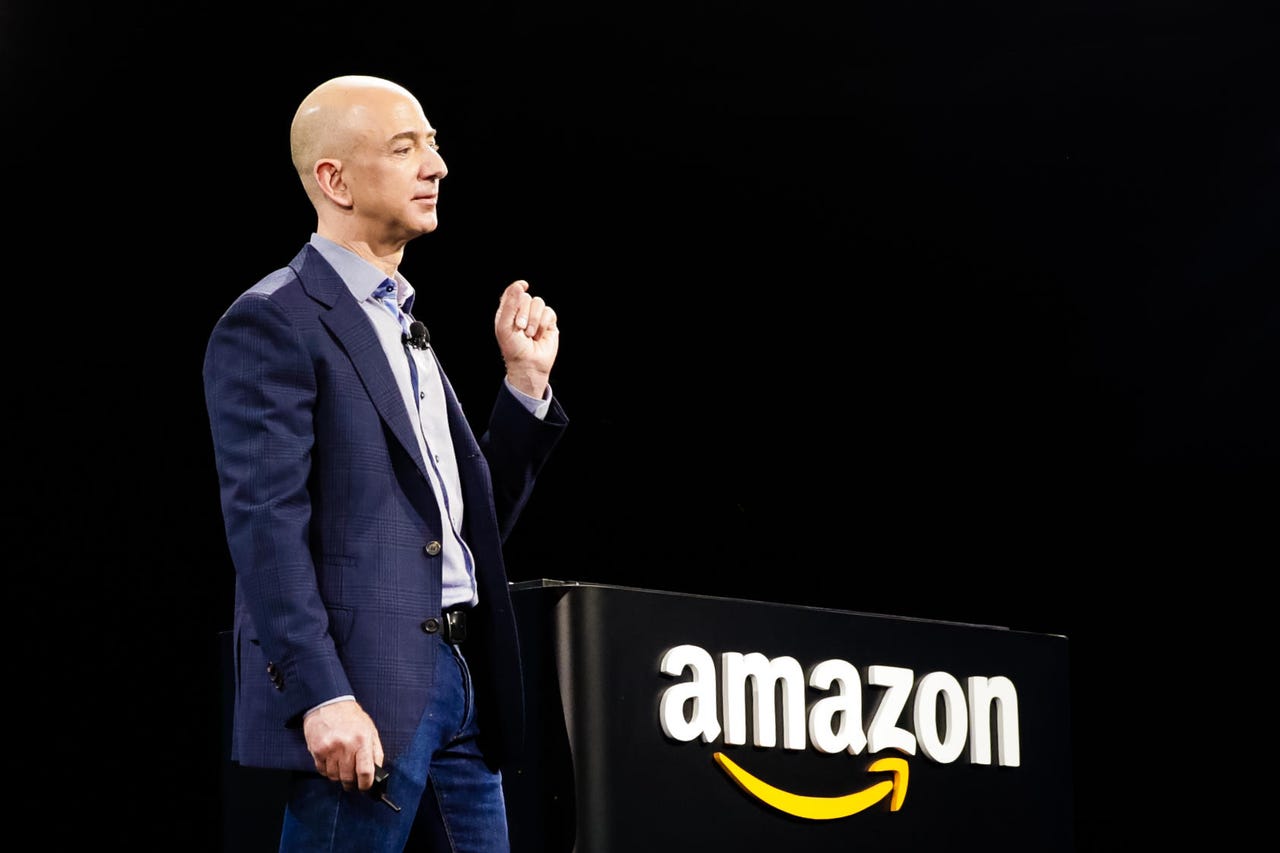Amazon doesn't want you to know how many data demands it gets

Amazon remains the only US internet giant in the Fortune 500 that has not yet released a report detailing how many demands for data it receives from the US government.
Although people are starting to notice, the retail and cloud giant has no public plans to address these concerns.
Word first spread last week when the ACLU's Christopher Soghoian, who's spent years publicly denouncing companies for poor privacy practices, told attendees at a Seattle town hall event that he's "hit a wall with Amazon," adding that it's "just really difficult to reach people there."
Almost every major internet company issues on a bi-annual basis a report of how many demands for data it receives from the US government (and others). In the wake of the PRISM surveillance scandal, where nine tech companies were accused of being complicit in NSA surveillance, the tech industry wanted more transparency. The telcos were late to get on board, but eventually began releasing their own figures, beginning with Verizon.
So we got on the phone with Amazon to ask why it hasn't disclosed its figures yet.
After a brief exchange, spokesperson Ty Rogers did not return a request for comment. Bill Way, the company's associate general counsel for privacy, did not return an email asking for comment.
We reached out to nearly 30 people who are currently or formerly associated with the company. After two days of cold-emails, one person who declined to be named said they and others were "under confidentiality obligations" not to discuss such matters. We weren't getting anywhere.
Nicole Ozer, at the ACLU's Northern California branch, described Amazon's silence as "puzzling" in the wake of the NSA revelations.
"All the major tech companies, even the telcos, have issued transparency reports, and yet Amazon, which deals with so much sensitive customer data and a mountain of business data, hasn't released a transparency report," she said.
Indeed, Amazon remains one of the few internet-focused companies that has not (yet) been directly affected by the NSA revelations, which continues to threaten public trust in the US internet economy.
"The more consumer-facing companies were more obviously implicated by the NSA revelations, and they started to feel the pressure and the impact on their business," said Kate Westmoreland, a fellow at the Center for Internet and Society at Stanford Law School. "Where a company such as Google has experienced the pressure from consumers [to disclose figures] they see a transparency report as a good way to try to allocate responsibility in the way that they perceive it," she added.
Amazon hasn't budged on its privacy stance in years. Because of its lack of clarity on how it handles data requests, Amazon has for the past four years running ranked as one of the lowest companies in the Electronic Frontier Foundation's (EFF) annual privacy reports.
"Amazon has a tremendous amount of user data, both from its direct retail businesses and from its hosting services through Amazon Web Services, but it fails to let users, and potential users, evaluate their policies and understand how law enforcement seeks to gain access to data stored with them," the privacy group wrote in its most recent report.
A transparency report could give the company at least two more stars, putting Amazon on par with LinkedIn, security firm Lookout, Pinterest, privacy-focused cloud-firm Spideroak, and encrypted chat app maker Wickr, which all have four out of five stars.
Amazon is under no legal obligation to report its numbers, despite the fact that such reporting has now become an industry norm.
"Customers increasingly care about companies making ethical choices, and transparency reporting provides them with one more piece of the puzzle to aid them in making decisions about what services, tools, and products they use," said Jillian York, Director for International Freedom of Expression at the EFF.
Read more on ZDNET:
So, why won't Amazon do it?
We don't know, and nobody wants to talk. It's been widely speculated before (though not necessarily naively) that the US government may have asked Amazon to hold back on reporting those figures.
Amazon struck a deal worth $600 million over ten years to provide its cloud computing prowess to the US intelligence community. The aim of the deal is to "avoid the intelligence gaps" that preceded the September 11 terrorist attacks.
But it doesn't add up. Microsoft has contracts with various governments to provide Windows and Office software. Google offers a range of open-source and cloud-based services to the government, and Apple provides iPhones and iPads to government and military users, thanks to earning various certifications.
The other big question is "now what?"
Amazon doesn't just provide retail services and cloud computing technology. With its smartphone and tablet line-up, the company is taking on even more data -- including browsing history through its Silk browser, reading habits, and other data like IP addresses. The company is slated to be moving into the enterprise and work-based email provider space.
"I think companies certainly risk opening themselves up to more scrutiny by posting transparency figures, but they also provide customers or users with more information with which to make their decisions, which can certainly have positive result," said York.
If Amazon is getting into Microsoft and Google territory with the amount of data it has, it should be expected to be just as transparent. At very least, it should be held to the same standard by consumers.
